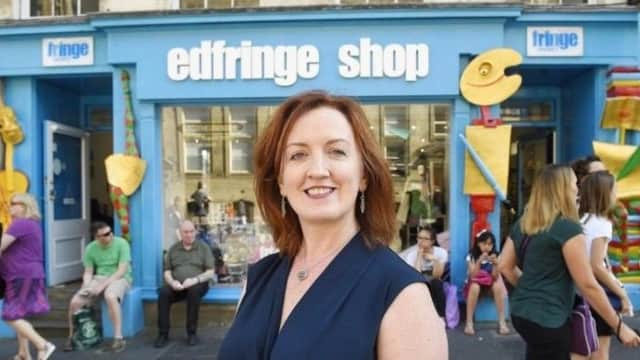To Fringe or not to Fringe? How the main players are preparing for August 2020


“I do honestly think that, even here in Edinburgh, many people still just don’t get it, about the way the Fringe works,” says the Fringe Society’s chief executive, Shona McCarthy. What she’s referring to is the unique origin of the Fringe in the discontent of a small group of theatre companies which had not been included in the first Edinburgh International Festival, in 1947; and in their decision to perform in Edinburgh anyway, by organising their own venues, and simply getting on with it.
The Fringe Society was founded a decade later and ever since – despite the colossal growth of the Fringe, from those eight original companies to more than 3,000 today – it has functioned as a light-touch, membership-led organisation, with very little public subsidy. In return for subscriptions from Fringe companies, it offers advice and support, publishes the Fringe brochure and runs the central Fringe box office. And when it comes to cancelling the event, the Fringe Society can therefore advise people not to come, and make it clear that it will offer no support to those who do so against governments’ guidelines – but that is as far its power runs.
Advertisement
Hide AdAll of which makes it exceptionally difficult to predict both exactly what will happen in Edinburgh this August, and what the huge range of Fringe companies who would have been here will do instead, if a physical appearance in Edinburgh remains impossible. “If by some miracle the coronavirus crisis is over by August,” says McCarthy, “and we have complete clearance for public gatherings from the government, the police and the health authorities, then of course we’ll do what we can to support companies that do come. But from all I’m hearing, I’m just not expecting that to be the case.”
If the prospects for any live action in Edinburgh in August are small, though, there is huge pressure on artists across the performing arts to keep themselves in the public eye – and some kind of income trickling in – by moving rapidly into online work. Some familiar Edinburgh Fringe promoters are already up and running with online offerings. The Stand Comedy Club, for example, is offering a weekly Saturday Night Live At The Stand, with a donate button that reads “Keep The Laughter Alive – Donate Now!”; Karen Koren’s Gilded Balloon, the comedy and theatre venue that takes over the Teviot Row students’ union every festival, has gone into the online business with a Friday night Sofa Set-List, supported by stars like Jo Brand. And last week, the world’s second largest Fringe Festival – which takes place in Adelaide, South Australia, every February – announced that it was launching an online site called Adelaide FringeView, likewise designed to showcase artists’ work, and to raise some income for them.
“It’s pretty competitive out there online, though,” says Koren, “really just as competitive as live theatre and comedy; and it is difficult to monetise the work people do online, to any significant extent.
“I also think a lot of people in the live performance business – and I’d include myself – are still in shock over this, over the suddenness of the shutdown, and its huge implications. Some artists just basically want to stay at home, and do some decorating, and think it all through; and you can’t blame them for that.”
Miriam Attwood of Storytelling PR, the leading Edinburgh Fringe publicist who runs the press office at Summerhall, tends to agree. “Of course if artists want to go online, that’s great; and there are some companies whose work is ideal for it. Really, though, I’m not sure that this is the time to be asking artists who are often already quite vulnerable, and who have been putting their all into work that’s just been completely disrupted, to reinvent themselves immediately, and to take a new set of risks.”
And across all venues and major Fringe players, there is absolute agreement that whatever happens online, nothing can really substitute for the thrill of the huge party that is Edinburgh in August. “I know many people in Edinburgh now say how much they hate it,” says Koren from her home in the city, “and how it’s all ‘too big’.
Advertisement
Hide Ad“But I would say to them, be careful what you wish for. I think people will be shocked to discover, this year, just how many businesses and organisations, and even individual people in Edinburgh, depend on that big surge of income during the Fringe to keep them viable and profitable, and how different the city would be without it.”
And while Shona McCarthy understands the political pressure to combat over-tourism, she is also wary of blaming the festivals for Edinburgh’s recent problems in that area. “It’s three weeks of the year,” says McCarthy, “and all our recent surveys show that a big majority of people think it’s great, both in itself, and for the city.
Advertisement
Hide Ad“As an organisation, we at the Fringe have become really conscious, over recent years, of the need to change our way of working, cut down on international travel and try to become one of the greenest festivals in the world. Times are changing, and we do need to be constantly reimagining what we do.
“Yet for all that, I think we will always need some kind of exemption for artists, to allow them to travel. Because we need to see that international work, we need to see it live, we need the informal conversations and exchanges between artists and audiences that happen in the bar afterwards; and no matter how the world looks in the aftermath of this crisis, that’s what Edinburgh in August will always really be about, for everyone who loves these festivals.”